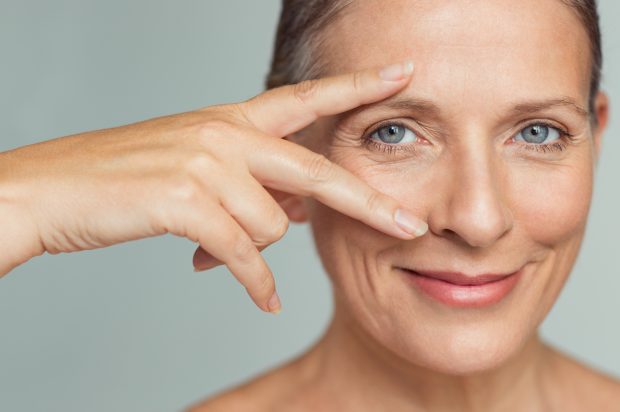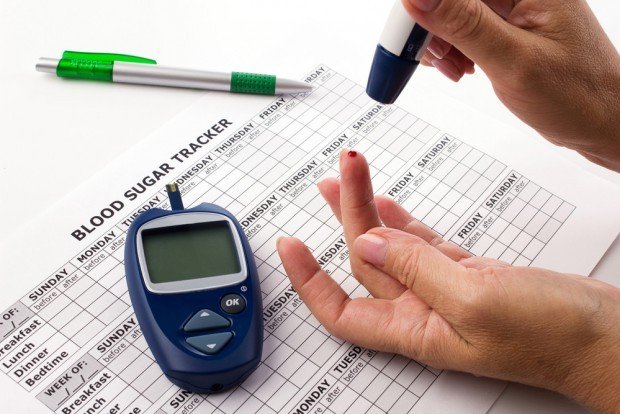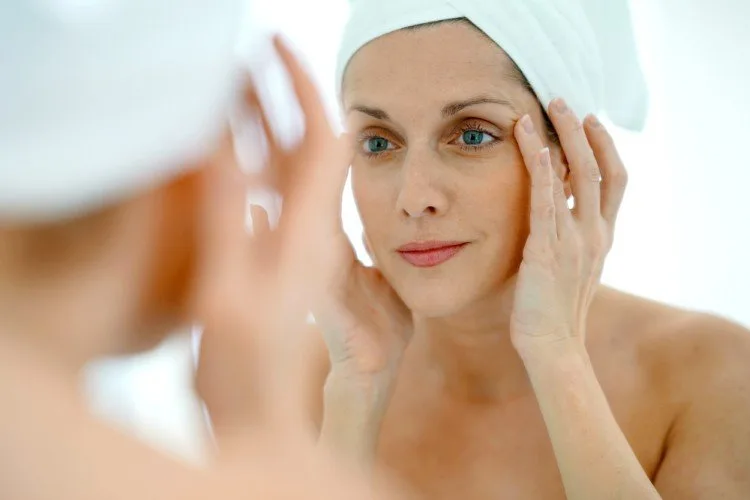Experiencing the myriad of natural and entirely normal effects of aging is what one could describe as a bit of a contradiction. On the one hand, the very fact that you are aging and maturing means that you are lucky enough to be in fine proverbial fettle and that you are likely to be around for many years to come.
On the other hand, however, aging can understandably be somewhat frustrating, upsetting, and in some people’s cases, downright devastating, to start to experience the effects of aging as it makes one confront reality and indeed, their own mortality.
With this in mind, here for your information and to hopefully provide at least some positive consolation to getting older, are some top tips, techniques, and pieces of advice for handling the effects of aging.
Your Skin

LightField Studios/Shutterstock
One of the most noticeable signs of aging, especially to yourself when you look in the mirror of a morning, is that your skin may have started to display signs of wrinkles, frown lines, crow’s feet, and/or furrows on your forehead.
There is a wide plethora of both more affordable and incredibly expensive lotions, potions, and creams whose taglines claim to, quite literally, ‘reverse the signs of aging and at the risk of catastrophic revelation, these claims are really not worth the paper they are written on.
However, having said that, it is true to say that making a thick, non-sticky, and water-based moisturizer part of your daily and ideally evening as well, skincare routine is well worth it, especially as most moisturizer brands contain a certain SPF along with their other ingredients.
Your Hair
For men and especially those men whose father, brother, and/or uncle began to lose their hair in their early forties, it is most likely that they will also follow the same trend. Some men who are experiencing hair thinning, balding, or a general receding of their hairline are more than happy, quite rightly, to embrace their natural baldness and ‘own it’.
However, if you are not one of those men and instead feel as if losing your hair also signifies losing part of your identity, character, and overall personal style, there are several options you may want to consider.
There are two principal prescription drugs, both of which are designed for treatment, prevention, and combat hair loss, called Minoxidil and Finasteride, the latter of which must never be prescribed to women as it can be dangerous to females.
Alternatively, a more permanent, pricey yet ultimately far more effective option to combat baldness is to research hair transplants, as not only does such a procedure result in an incredibly natural looking hairline but it also encourages new hair growth in and around the treated area.
Your Muscles & Joints
You will no doubt remember your grandma or grandad complaining of aching joints or holding their back after standing up for too long. You probably and quite understandably laughed at their protestations that ‘this happens when you get old.’
Muscle, joint aches and pain can happen at any age and is sometimes only the result of an injury or sprain, in which case such symptoms will dissipate over time, but if you have recently started to feel particularly achy and uncomfortable, there are a number of things you can do in an effort to combat this:
- Rest the affected part of your body when you can
- Elevate the limb if possible while resting
- Gentle stretching before leaving the house
- Holding an ice pack or ice cubes in the painful area
- Deep heat packs in the area
- Anti-swelling medicines such as ibuprofen where needed
Additionally, ensure you are eating enough fresh fruit and vegetables and drinking enough water, not just for the health of your joints and muscles, but also for the physical health and wellbeing of your entire body.
Your Eyesight
As with every single other organ of the human body, everyone is entirely unique and individual and therefore it is entirely likely that if you stood one hundred thirty-five-year-old people in a line and rated their eyesight, you would receive widely conflicting data and results.
There is a multitude of factors that can affect the strength of your vision and act as a catalyst for the decline of your eyesight.
-
Eye Strain

Rido/Shutterstock
If your job involves staring at a computer screen for hours upon hours on end, or if you are one of those people who are glued to their smartphone or tablet at every given opportunity, then over time this may result in dry, itchy, tired and strained eyes.
Start taking regular, five-minute breaks away from the screen whenever possible approximately every hour, move your screen further away from your face and improve the level of the lighting on your desk to try and reduce the glare from the screen.
-
Stop Smoking
Everyone in the world knows and understands by now that smoking cigarettes and cigars is not only bad for your lungs and heart, but also bad for your eyes as well.
Smoking drastically increases the risk of such eye issues as diabetic retinopathy cataracts ad glaucoma and if you are a smoker, this is yet another reason to give up immediately.
-
Improve Your Diet
Another, perhaps slightly less widely known, factor that can influence the quality and longevity of your vision is when you are not consuming the right kinds of foods.
Try and improve your general daily diet by eating more of the following:
- Red meat (especially beef)
- Sweet potatoes
- Seeds and nuts
- Oily fish
- Lemons and limes
- Leafy vegetables
- Eggs
- Carrots
Warning signs that you may have a problem with one or both of your eyes include, but are not limited to, the following issues:
- Limited peripheral (sideways) vision
- Blind spots
- Floating blurs
- Swelling in one or both eyes
- A generally narrower field of vision
- An itching sensation that doesn’t go away
- Double vision
- Pain in and around the eye area
If you are experiencing any of the above signs and symptoms, it is best to make an appointment with your medical doctor as soon as possible, just in case there could be a more serious underlying problem.
Your Stamina & Strength
As a person gets older, the levels of strength and stamina naturally decline, and there is no better explanation than obviously, the older you are, the more use your legs, arms, and back have had and therefore the more ‘worn out’ they may become.
Whereas the strength of your arms and legs is both measurable and easy to see, the concept of stamina is far harder to measure and therefore less practical to build, however, both strength and stamina are equally as important in your quest to stave off the natural signs of aging.
Consistent exercise is one way to steadily build your stamina levels, although if, prior to reading this article, you rarely, if ever, engage in physical exercise, then it is crucial to both stretches before you start your exercise session and to work your way up slowly. Along with physical exercise, another way to ensure your body has the strength and stamina it needs is to ensure that you are always sufficiently hydrated, so put down the soda and instead invest in a funky and aesthetically pleasing water bottle that you can carry around with you both at work and around the house.
There are a wide plethora of benefits to drinking more water, not just for your physical health, but for your emotional wellbeing as well, which include, amongst others:
- Improving both blood pressure and blood circulation
- Avoiding constipation and boost the efficiency of the digestive system
- More flexibility and durability of your muscles and joints
- A general and wholly positive increase in athletic performance
- An improvement in concentration and the ability to focus
- A way to stave off tiredness and fatigue
- An aid to healthy weight loss
- Helps to protect your body against a wide variety of diseases and illnesses
Your Blood Pressure
Another key way in which your body starts to show signs of aging and more importantly, an element of your physical health that you need to start keeping your proverbial eye on, is your blood pressure reading.
If you currently believe your blood pressure to be slightly too high, the best thing to do is to book an appointment with your medical doctor, or at the very least with a quality blood pressure monitor so you can take your blood pressure at regular intervals at home.
Luckily, if you do find your blood pressure to be high, or else you are concerned that if you don’t change some of your bad habits and adapt your lifestyle then this could be the result, there is a myriad of ways in which you can reduce the level of your blood pressure to a normal and acceptable level.
Such ways to keep your blood pressure in check include:
- Try and get your weight down into the healthy BMI range
- Reduce the levels of salt (sodium) in your diet
- Avoid drinking excessive amounts of alcohol
- Stop smoking
- Reduce the number of cups of coffee or tea you consume each day
- Be sure to eat more fresh fruit and vegetables
Your Glucose Levels
 General awareness and the acceptance of diabetes as a serious and potentially even fatal disease of the body has only, in recent years, started to enter the mainstream media and public’s conscience and it is absolutely imperative that you avoid contracting diabetes as much as feasibly possible. The main way to avoid diabetes entirely is to reduce your sugar intake.
General awareness and the acceptance of diabetes as a serious and potentially even fatal disease of the body has only, in recent years, started to enter the mainstream media and public’s conscience and it is absolutely imperative that you avoid contracting diabetes as much as feasibly possible. The main way to avoid diabetes entirely is to reduce your sugar intake.
Diabetes is essentially when the glucose, or sugar, levels in your blood are too high. As blood glucose is the primary source of energy to fuel your entire body, the food you eat directly affects the amount of sugar in your body. If your pancreas is unable to make enough insulin to transport the sugar into your cells, it stays in the blood and causes a whole host of problems.
The most prolific and noticeable signs and symptoms of diabetes include the following:
- Unplanned and rapid weight loss
- Blurry vision
- Frequently urinating
- Regular vaginal infections
- Extreme hunger
- Increased levels of thirst
- Fat deposits in urine
- Sores and cuts that do not heal quickly
- Irritability
- Gum infections
- Skin diseases
- Tiredness and fatigue
Contracting diabetes is by no means a life sentence for constant pills and drugs. However, if diabetes is not handled correctly, it could lead to more serious health issues:
- Kidney damage
- Eye damage
- Memory related diseases such as Alzheimer’s
- Skin conditions
- Nerve damage
- Risk of limb amputation
- Cardiovascular disease
- Hearing problems
- Depression
Your Memory
You will no doubt struggle to find a single person who can honestly claim that they have never entered a room and immediately forgotten why they went in there in the first place. These tiny lapses in memory are as laughable as they are insignificant.
However, it is true to say that both men and women of any age and of any particular situation and lifestyle should always look after their minds. They need to protect the quality and durability of their cognitive brain functions.
There is often talk, both casually amongst friends and in more serious news articles in the newspaper, online, or on the television, about the importance of ‘keeping your brain young, and frankly, this should be adhered to.
Proven-to-be effective ways of training your brain and ensuring it is in as good a condition as it possibly can include:
- Physical aerobic exercise (believe it or not, it’s true)
- Eating more nuts, seeds, fruits, and vegetables
- Reducing your blood pressure
- Normalizing your blood sugar levels
- Stopping smoking immediately
- Limiting the amount of alcohol you drink
- Wearing helmets or PPE equipment when required to protect your head and scalp
- Socializing and interacting with others regularly
- Lowering your cholesterol levels
- Taking care of your emotional health and wellbeing
- Brain training exercises and games



![women [longevity live]](https://longevitylive.com/wp-content/uploads/2020/01/photo-of-women-walking-down-the-street-1116984-100x100.jpg)










